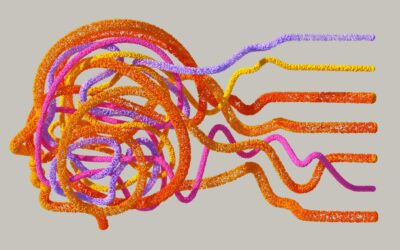Does information seem to pass through your mind like a sieve? Do you find that the information from that conference call this morning escapes you this afternoon? Research in neuroscience is providing clues to how your brain encodes, stores and retrieves memories. The hippocampus is central to this process.
The hippocampus is like cement. It gathers bits of information to form a memory and sticks them together. Unlike cement, however, the memory isn’t solid but rather malleable during recall over time.
Here are seven ways to improve memory retention:
- Pay attention. Multi-tasking drops accuracy by 50%. The next time you’re on a teleconference and writing an email at the same time, recognize that you are substantially compromising both. Can you afford to have a poorly-written email and why are you on the webinar if you don’t need the information? Or what about that embarrassing moment when someone on the call asks you a question and you realize you have no idea what they are talking about? You can’t recall something you haven’t focused on.
- Organize information. Organized information is three times better remembered than random bits of information. The information needs to be organized in advance for the best impact. The next time you hold a meeting, take the time to make an agenda and organize the content. It will be more impactful and you stand a better chance that participants will remember the content.
- Apply it to you. You are in a briefing about a new process that’s about to be implemented. Rather than sit through the meeting, actively think about how the new process applies to your work. The mental activity of personalizing the information embeds the memory in your brain more fully.
- Remember the context. The brain associates memories with its context. This is why the smell of cinnamon takes you back to your grandmother’s house or a song transports you to your wedding reception. When you’re fishing around inside your brain for elusive information, relive the context to assist with retrieval.
- Take notes…by hand. It seems more efficient to take notes on the computer but it is mostly transcribing. You quickly type what you hear with little mental processing. However, to take notes by hand, you must organize the information in your mind and identify the most relevant parts that you commit to paper. The process or organizing, evaluating and summarizing embeds the information in your brain more effectively making it more likely that you can access the information later.
- Sleep on it. The brain replays and consolidates memories during sleep or periods of restful (not busy) awake time. To help with long-term storage, give your brain some downtime to allow it to store away the memory. Non-stop work may look busy but it is not effective for long-term retention.
- Stop cramming. Cramming may work for passing a one-time test but it doesn’t work for long-term learning and retention. The brain prefers to learn in short chunks spread over time rather than long, intense periods that you power through. For information that you need to hang on to, take it in through 30 minute periods and sleep in between. You’ll remember more.





0 Comments